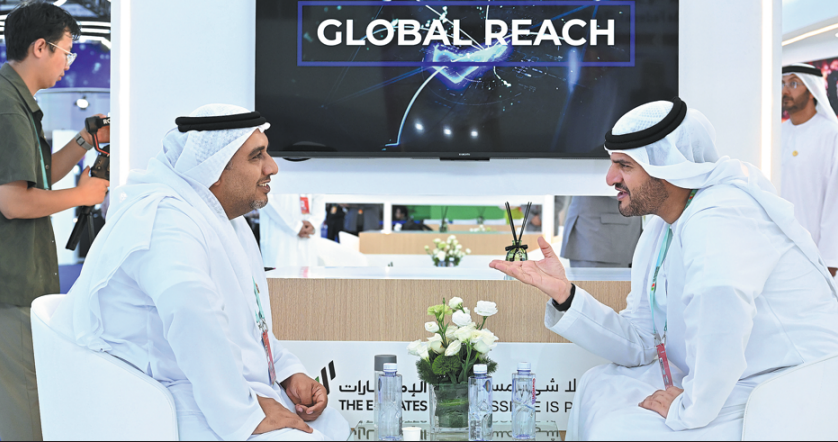Expo attracts all Arab nations


China's economic ties with Arab nations are evolving beyond the traditional realms of fossil energy, infrastructure and agriculture, as the two sides deepen their collaboration in emerging sectors such as the digital economy, artificial intelligence and green energy, officials and executives said on Thursday in Yinchuan, Ningxia Hui autonomous region.
As the global economy grapples with a multitude of uncertainties, the deepening cooperation between China and Arab nations, rooted in principles of win-win outcomes, is poised to provide fresh impetus for the development of both sides, while also contributing to the growth of the global economy, they said at the start of the four-day 7th China-Arab States Expo.
The economic profiles of China and Arab nations seamlessly align, and the development trajectories between the two sides are well-suited to forge a mutually beneficial relationship, said Yuan Xiaoming, assistant minister of commerce.
In the first seven months of the year, China's imports of crude oil from Arab nations accounted for over 40 percent of its total crude oil imports, while its imports of natural gas, refined oil and metal ores from the Arab world also saw significant increases, providing crucial support for China's stable energy supplies, said the General Administration of Customs.
During the same period, China's exports of mechanical and electronic products to Arab nations reached 557.66 billion yuan ($78.12 billion), up 22 percent year-on-year, accounting for nearly 60 percent of China's total exports to the region.
"In a significant shift in global economic dynamics, Arab states are increasingly orienting their strategic focus eastward, with China emerging as a primary partner for their development and stability goals," said Li Shaoxian, director of the China-Arab Research Institute at Ningxia University.
Li said the Arab world's robust demand for infrastructure construction, energy structure transformation, digital economy and healthcare has provided new momentum and vast untapped markets for Sino-Arab economic and trade cooperation.
To this end, this year's expo has seen the introduction of dedicated exhibition areas for the digital economy and artificial intelligence, as well as a specialized green energy applications zone, attracting the participation of some of China's most prominent technology and energy companies.
Despite its vast oil reserves, Arab nations have remained committed to optimizing their energy structure and advancing a clean energy transition.
"The Arab region is one of the world's best-endowed areas for solar and wind resources, providing it with unparalleled conditions for the development of clean and renewable energy," said Zhou Mi, a senior researcher at the Chinese Academy of International Trade and Economic Cooperation.
At the same time, China has built a leading position in photovoltaic and wind power technologies, boasting advanced know-how and extensive experience in these sectors, creating a complementary relationship with Arab nations in the pursuit of clean and renewable energy solutions, Zhou said.
The expo has served as a bridge, linking the distinct advantages of both sides to unlock greater collaboration potential, said Ahmed Mustafa Fahmy, head of the League of Arab States' China Representative Office.
Specialty agricultural products from the region, such as dates, olive oil and spices, have captivated Chinese consumers with their pure quality and cultural flair, while China's 5G equipment, new energy vehicles and smart home appliances have precisely aligned with the Arab world's digital transformation and consumption upgrade demands, he said.
The combination of China's technological capabilities and Arab nations' policy support — as well as their significant market potential — creates the perfect recipe for success, he added.
The expo is seeing participation from all 22 Arab nations for the first time this year. The event is scheduled to run from Thursday until Sunday in Yinchuan.
Contact the writers at wangkeju@chinadaily.com.cn




































